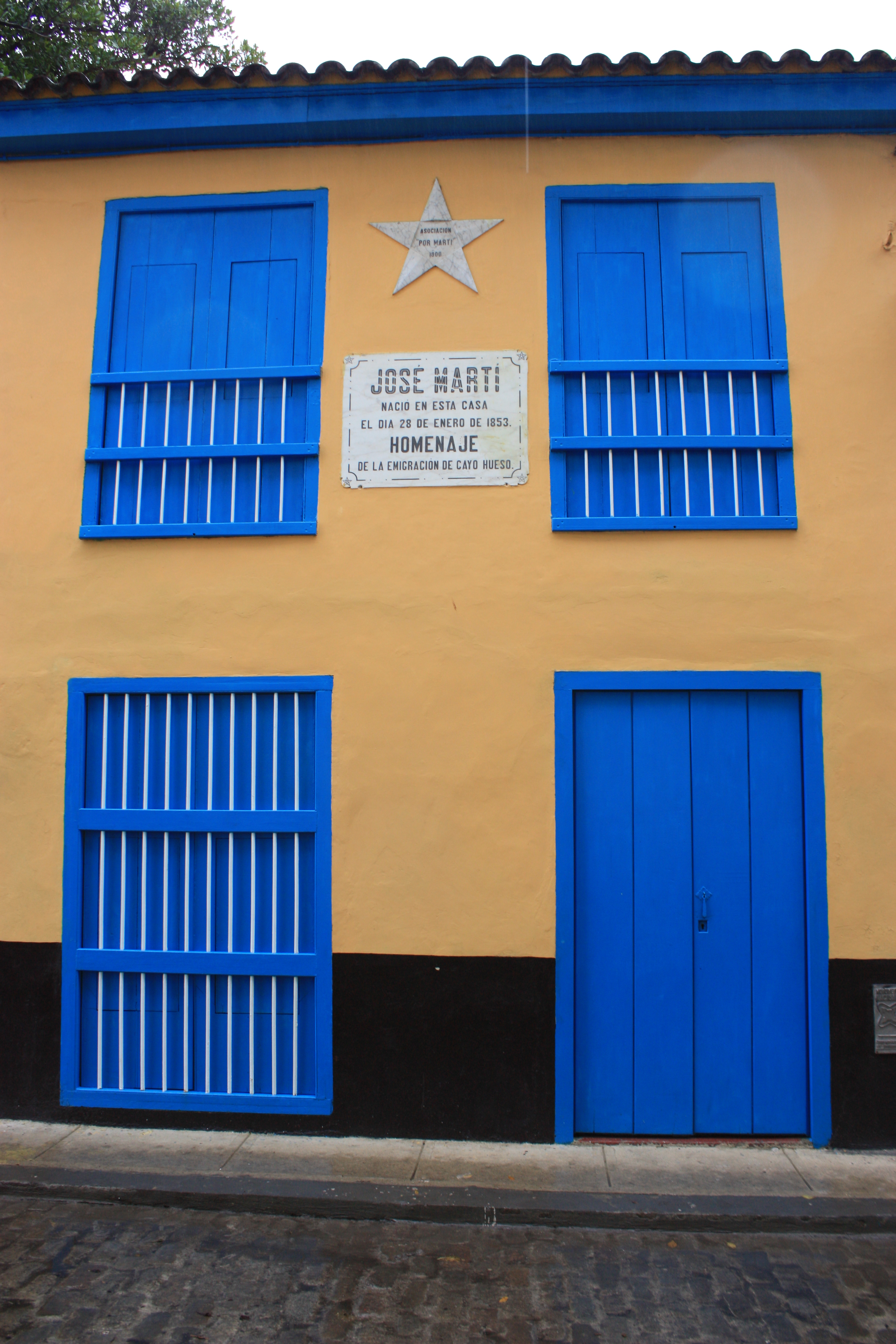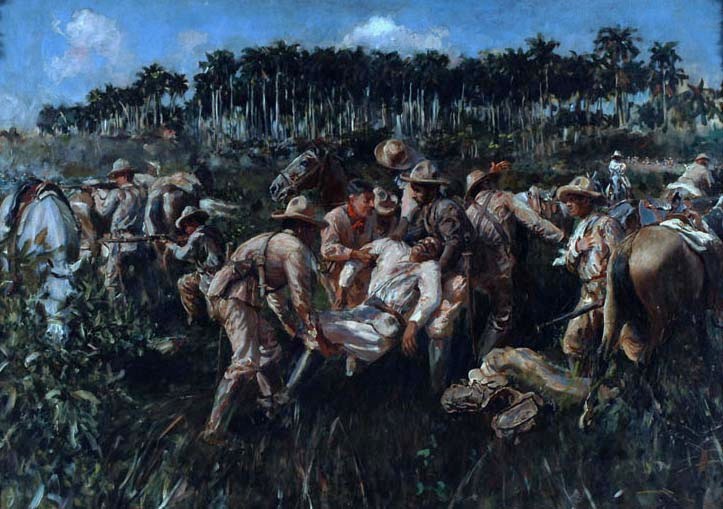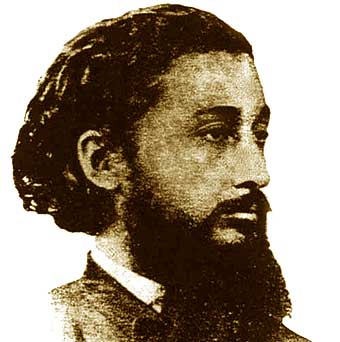|
Partido Revolucionario Cubano (1892)
The Cuban Revolutionary Party ( es, Partido Revolucionario Cubano, PRC) was a political organization created by the Cuban intellectual José Martí on 10 April 1892 in order to organize the independence of Cuba and, as much as possible, Puerto Rico, two of the last overseas provinces of Spain in America. Conception and Creation José Martí advocated tirelessly to make the “hour of the second independence” come to pass and thereby prevent the expansion of the United States on the lands of Latin America. In its continental strategy, the liberation of Cuba and Puerto Rico was a first step that would decide the fate of the continent. Martí, from 1891 on, would dedicate all his energies to creating an institution of a new type, structuring a strong and solid revolutionary unit, unique in the history of Latin America: The Cuban Revolutionary Party, a party for independence. At the end of 1891, Martí had expressed in conversations and speeches to the Cuban exiles, the idea of cre ... [...More Info...] [...Related Items...] OR: [Wikipedia] [Google] [Baidu] |
José Martí
José Julián Martí Pérez (; January 28, 1853 – May 19, 1895) was a Cuban nationalist, poet, philosopher, essayist, journalist, translator, professor, and publisher, who is considered a Cuban national hero because of his role in the liberation of his country from Spain. He was also an important figure in Latin American literature. He was very politically active and is considered an important philosopher and political theorist. Through his writings and political activity, he became a symbol of Cuba's bid for independence from the Spanish Empire in the 19th century, and is referred to as the "Apostle of Cuban Independence". From adolescence, he dedicated his life to the promotion of liberty, political independence for Cuba, and intellectual independence for all Spanish Americans; his death was used as a cry for Cuban independence from Spain by both the Cuban revolutionaries and those Cubans previously reluctant to start a revolt. Born in Havana, Spanish Empire, Martí began h ... [...More Info...] [...Related Items...] OR: [Wikipedia] [Google] [Baidu] |
Tomás Estrada Palma
Tomás Estrada Palma (c. July 6, 1832 – November 4, 1908) was a Cuban politician, the president of the Cuban Republican in Arms during the Ten Years' War, and the first President of Cuba, between May 20, 1902, and September 28, 1906. His collateral career as a New York City area educator and writer enabled Estrada Palma to create pro-Cuban literature aimed at gaining sympathy, assistance and publicity. He was eventually successful in garnering the attention of influential Americans. He was an early and persistent voice calling for the United States to intervene in Cuba on humanitarian grounds. During his presidency his major accomplishments include improving Cuba's infrastructure, communication, and public health. He is remembered in Cuba for allowing the enactment of the Platt Amendment, which ensured American political and economic dominance over Cuba. Personal and early life He was born in Bayamo, Spanish Cuba, around July 6, 1832, to Dr. Andrés María Estrada y Oduardo an ... [...More Info...] [...Related Items...] OR: [Wikipedia] [Google] [Baidu] |
Liberalism
Liberalism is a political and moral philosophy based on the rights of the individual, liberty, consent of the governed, political equality and equality before the law."political rationalism, hostility to autocracy, cultural distaste for conservatism and for tradition in general, tolerance, and ... individualism". John Dunn. ''Western Political Theory in the Face of the Future'' (1993). Cambridge University Press. . Liberals espouse various views depending on their understanding of these principles. However, they generally support private property, market economies, individual rights (including civil rights and human rights), liberal democracy, secularism, rule of law, economic and political freedom, freedom of speech, freedom of the press, freedom of assembly, and freedom of religion. Liberalism is frequently cited as the dominant ideology of modern times.Wolfe, p. 23.Adams, p. 11. Liberalism became a distinct movement in the Age of Enlightenment, gaining popularity ... [...More Info...] [...Related Items...] OR: [Wikipedia] [Google] [Baidu] |
Radicalism (historical)
Radicalism (from French , "radical") or classical radicalism was a historical political movement representing the leftward flank of liberalism during the late 18th and early 19th centuries and a precursor to social liberalism, social democracy and modern progressivism. Its earliest beginnings were found in Great Britain with the Levellers during the English Civil War, and the later Radical Whigs. During the 19th century in the United Kingdom, continental Europe, and Latin America, the term ''radical'' came to denote a progressive liberal ideology inspired by the French Revolution. Historically, radicalism emerged in an early form with the French Revolution and the similar movements it inspired in other countries. It grew prominent during the 1830s in the United Kingdom with the Chartists and Belgium with the Revolution of 1830, then across Europe in the 1840s–1850s during the Revolutions of 1848. In contrast to the social conservatism of existing liberal politics, radica ... [...More Info...] [...Related Items...] OR: [Wikipedia] [Google] [Baidu] |
Cuban Independence
The Cuban War of Independence (), fought from 1895 to 1898, was the last of three liberation wars that Cuba fought against Spain, the other two being the Ten Years' War (1868–1878) and the Little War (1879–1880). The final three months of the conflict escalated to become the Spanish–American War, with United States forces being deployed in Cuba, Puerto Rico, and the Philippine Islands against Spain. Historians disagree as to the extent that United States officials were motivated to intervene for humanitarian reasons but agree that yellow journalism exaggerated atrocities attributed to Spanish forces against Cuban civilians. Background During the years 1879–1888 of the so-called "Rewarding Truce", lasting for 17 years from the end of the Ten Years' War in 1878, there were fundamental social changes in Cuban society. With the abolition of slavery in October 1886, freedmen joined the ranks of farmers and the urban working class. The economy could no longer sustain itse ... [...More Info...] [...Related Items...] OR: [Wikipedia] [Google] [Baidu] |
Civic Nationalism
Civic nationalism, also known as liberal nationalism, is a form of nationalism identified by political philosophers who believe in an inclusive form of nationalism that adheres to traditional liberal values of freedom, tolerance, equality, individual rights and has no ethnocentrism. Civic nationalists often defend the value of national identity as an upper identity by saying that individuals need a national identity in order to lead meaningful, autonomous lives and that democratic polities need national identity in order to function properly. Civic nationalism is frequently contrasted with ethnic nationalism. Civic nationhood is a political identity built around shared citizenship within the state. Thus, a " civic nation" is defined not by culture but by political institutions and liberal principles, which its citizens pledge to uphold. Membership in the civic nation is open to every citizen by citizenship, regardless of culture or ethnicity; those who share these values a ... [...More Info...] [...Related Items...] OR: [Wikipedia] [Google] [Baidu] |
Anti-imperialism
Anti-imperialism in political science and international relations is a term used in a variety of contexts, usually by nationalist movements who want to secede from a larger polity (usually in the form of an empire, but also in a multi-ethnic sovereign state) or as a specific theory opposed to capitalism in Leninist discourse, derived from Vladimir Lenin's work ''Imperialism, the Highest Stage of Capitalism''. Less common usage refers to opponents of an interventionist foreign policy. People who categorize themselves as anti-imperialists often state that they are opposed to colonialism, colonial empires, hegemony, imperialism and the territorial expansion of a country beyond its established borders. An influential movement independent of the Western Left that advocated religious anti-imperialism was Pan-Islamism; which challenged the Western civilisational model and rose to prominence across various parts of the Islamic World during the 19th and 20th centuries. It's most in ... [...More Info...] [...Related Items...] OR: [Wikipedia] [Google] [Baidu] |
Left-wing
Left-wing politics describes the range of political ideologies that support and seek to achieve social equality and egalitarianism, often in opposition to social hierarchy. Left-wing politics typically involve a concern for those in society whom its adherents perceive as disadvantaged relative to others as well as a belief that there are unjustified inequalities that need to be reduced or abolished. Left-wing politics are also associated with popular or state control of major political and economic institutions. According to emeritus professor of economics Barry Clark, left-wing supporters "claim that human development flourishes when individuals engage in cooperative, mutually respectful relations that can thrive only when excessive differences in status, power, and wealth are eliminated." Within the left–right political spectrum, ''Left'' and ''Right'' were coined during the French Revolution, referring to the seating arrangement in the French Estates General. Those ... [...More Info...] [...Related Items...] OR: [Wikipedia] [Google] [Baidu] |
Ramón Emeterio Betances
Ramón Emeterio Betances y Alacán (April 8, 1827 – September 16, 1898) was a Puerto Rican independence advocate and medical doctor. He was the primary instigator of the Grito de Lares revolution and is considered to be the father of the Puerto Rican independence movement. Since the ''Grito'' galvanized a burgeoning nationalist movement among Puerto Ricans, Betances is also considered ''"El Padre de la Patria"'' (Father of the uerto RicanNation). Because of his charitable deeds for people in need, he also became known as ''"El Padre de los Pobres"'' ("The Father of the Poor"). Betances was also a medical doctor and surgeon in Puerto Rico, and one of its first social hygienists. He had established a successful surgery and ophthalmology practice. Betances was also an abolitionist, diplomat, public health administrator, poet, and novelist. He served as representative and contact for Cuba and the Dominican Republic in Paris, France. An adherent of Freemasonry, his political and ... [...More Info...] [...Related Items...] OR: [Wikipedia] [Google] [Baidu] |
Liberal Parties In Cuba
Liberal or liberalism may refer to: Politics * a supporter of liberalism ** Liberalism by country * an adherent of a Liberal Party * Liberalism (international relations) * Sexually liberal feminism * Social liberalism Arts, entertainment and media * ''El Liberal'', a Spanish newspaper published 1879–1936 * ''The Liberal'', a British political magazine published 2004–2012 * ''Liberalism'' (book), a 1927 book by Ludwig von Mises * "Liberal", a song by Band-Maid from the 2019 album '' Conqueror'' Places in the United States * Liberal, Indiana * Liberal, Kansas * Liberal, Missouri * Liberal, Oregon Religion * Religious liberalism * Liberal Christianity * Liberalism and progressivism within Islam * Liberal Judaism (other) See also * * * Liberal arts (other) * Neoliberalism, a political-economic philosophy * The Liberal Wars The Liberal Wars (), also known as the Portuguese Civil War (), the War of the Two Brothers () or Miguelite War (), was ... [...More Info...] [...Related Items...] OR: [Wikipedia] [Google] [Baidu] |
Defunct Political Parties In Cuba
{{Disambiguation ...
Defunct (no longer in use or active) may refer to: * ''Defunct'' (video game), 2014 * Zombie process or defunct process, in Unix-like operating systems See also * * :Former entities * End-of-life product * Obsolescence Obsolescence is the state of being which occurs when an object, service, or practice is no longer maintained or required even though it may still be in good working order. It usually happens when something that is more efficient or less risky r ... [...More Info...] [...Related Items...] OR: [Wikipedia] [Google] [Baidu] |






